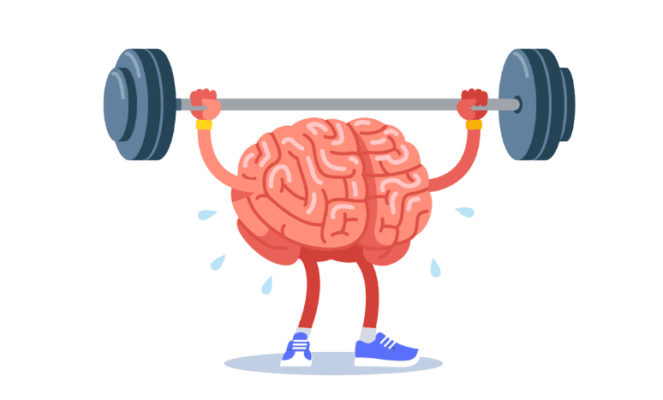Memory is one of the most valuable invisible assets a person can possess. In today’s fast-paced, information-driven world, a sharp memory doesn’t just help you learn or work faster to boost memory —it also gives you an edge in negotiations, public speaking, strategic thinking, and quick decision-making. In this article, we’ll reveal the memory-enhancing secrets once kept within elite business circles, so you too can train your brain to remember more, work faster, and think sharper — every day.
Why Your Memory Might Be Fading—and Why You Should Act Now
Many people don’t think about boosting memory until they feel it’s already declining. But in reality, memory issues are becoming increasingly common—and affecting younger people—due to factors like:
- Chronic stress and long work hours
- Poor sleep or lack of deep, restorative rest
- Sedentary lifestyle and lack of movement
- Constant use of smartphones and screens
- Nutrient-poor diets, especially lacking in healthy fats and B vitamins
- Distracting work environments with nonstop emails, notifications, and multitasking
As a result, you might find yourself forgetting important tasks, mixing up details, or feeling mentally foggy and overwhelmed.
Memory doesn’t deteriorate overnight—it erodes gradually through daily habits. The good news is that memory can be improved, and the best time to start is now.
What Successful CEOs Do to Boost Memory
Here are the key strategies used by top executives, entrepreneurs, and industry leaders to maintain strong, lasting memory and mental clarity:
They Train Their Memory Like a Muscle
Memory needs regular exercise, just like your body. Top-performing CEOs often:
- Read daily, then summarize what they’ve read in their own words
- Use visual thinking and mind maps instead of linear note-taking
- Practice name, number, and data recall using association techniques
- Leverage ancient memory tools like the Memory Palace technique

To boost memory, it is necessary to train your memory regularly
They Prioritize Sleep Quality, Not Just Sleep Time
Deep sleep is when the brain processes and consolidates memories. Successful leaders are highly protective of their sleep:
- Maintain consistent bedtime routines (often 10 PM–6 AM)
- Avoid caffeine, screen time, and work tasks before bed
- Optimize their sleep environment: dim lighting, cool temperature, quiet space
- Some CEOs also meditate before bed to enhance relaxation and brain recovery
They Exercise to Nourish the Brain
Exercise increases blood flow and oxygen delivery to the brain—both critical for memory and focus.
- Walk briskly for 20–30 minutes daily
- Do light workouts like yoga, stretching, or biking
- Some leaders even hold “walk and talk” meetings for creative problem-solving
They Eat to Feed Their Memory
These individuals eat not just for energy but also to support cognitive function. Their diets often include:
- Fatty fish: salmon, mackerel, sardines (rich in omega-3s)
- Nuts and seeds: walnuts, almonds, chia seeds (packed with healthy fats)
- Eggs, dairy, and yogurt: high in choline and B vitamins
- Leafy greens and berries: spinach, blueberries, oranges, pomegranates
- Dark chocolate, green tea, turmeric: powerful antioxidants for brain health
And they stay hydrated, drinking 1.5–2 liters of water daily to keep blood circulation to the brain strong and steady.
They Manage Information and Time Intelligently
One of the biggest memory drains is excessive exposure to useless information. Smart leaders:
- Curate what they read—avoiding meaningless news or gossip
- Prioritize their daily tasks—focusing on one thing at a time
- Use notes only as memory triggers, and rephrase them in their own words for better recall
- Schedule short breaks to reset and refresh the brain between tasks
Practical Habits to Boost Memory Starting Today
You don’t need to be a CEO to enjoy excellent memory. Try incorporating these simple, powerful habits into your daily life:
Get Enough Deep Sleep
- Aim for 7–8 hours of consistent sleep per night
- Keep a regular sleep-wake schedule
- Avoid screens 1 hour before bedtime
Move Your Body
- Walk, stretch, or do light exercise for 20–30 minutes daily
- Get some sunlight each morning to boost alertness and vitamin D
Eat a Brain-Boosting Breakfast
- Try oatmeal with berries and walnuts
- Or eggs with leafy greens and green tea
Practice Daily Memory Exercises
- Learn one new word or fact each day
- Keep a journal or write summaries of what you read
- Play memory-boosting games like sudoku, chess, or logic puzzles
Meditate or Deep Breathe
- Spend 5–10 minutes in quiet mindfulness
- Try simple breathing techniques to calm the brain and improve focus

Practicing meditation and deep breathing also helps boost memory
When to See a Doctor About Memory Loss
Sometimes, memory decline can be a sign of underlying health issues, such as:
- Anxiety or depression
- Thyroid disorders
- Brain oxygen deficiency or B12 deficiency
- Early stages of dementia or Alzheimer’s
Seek medical advice if you notice:
- Frequent short-term memory lapses
- Difficulty recalling names or familiar people
- Trouble concentrating or communicating clearly
- Lingering low mood, anxiety, or confusion
A neurologist or mental health specialist can help determine the cause and provide early intervention.
Boosting memory isn’t a luxury for busy people or high achievers—it’s a skill anyone can learn. With the right mindset and daily habits, you can turn your brain into a powerhouse of retention, focus, and clarity.







